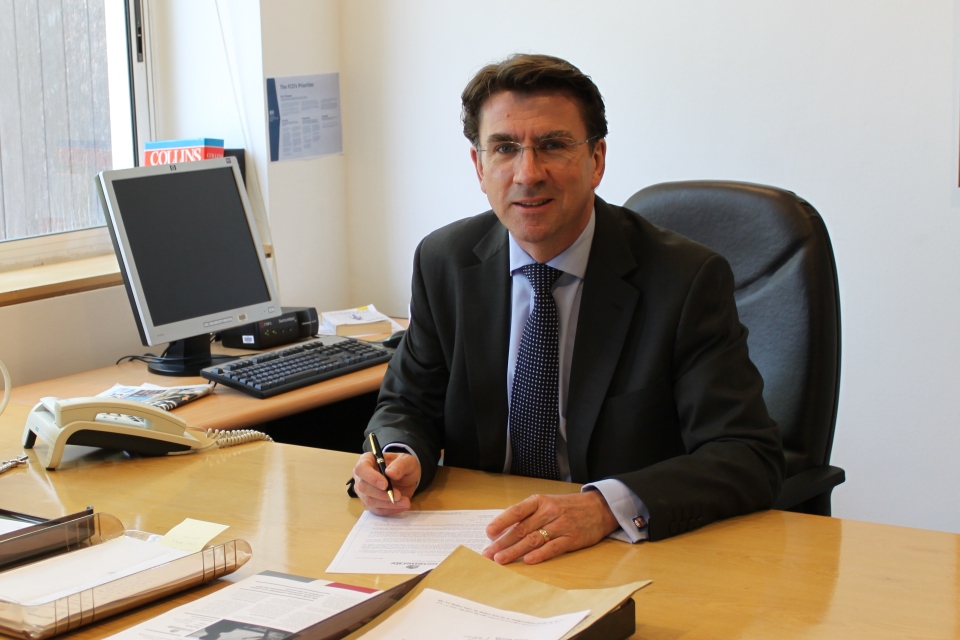HM Ambassador’s speech to the GCC youth justice workshop
British Ambassador Iain Lindsay speech to the GCC youth justice workshop

Your Excellencies, Ladies and Gentlemen,
I am delighted to have been asked by my good friend His Excellency the Attorney General Dr Ali bin Fadhel Al Buainain to open the first GCC Youth Justice workshop, kindly hosted by the Attorney General and supported by the British Embassy. A warm welcome to all of you.
It is really encouraging to see this level of attention being paid by the Bahraini authorities to the topic of Youth Justice, which is a vital part of Bahrain’s judicial reform programme and to which the United Kingdom is giving much support. The main objective of this workshop is to share experiences of juvenile justice and practices in Bahrain and the UK and to promote discussion with other GCC jurisdictions about best practice and reform.
Over the last 3 years, the UK has played an important role, as Bahrain’s strategic partner of choice, in helping to support the reform vision of His Majesty King Hamad and His Royal Highness the Crown Prince. We have done so because, as a close friend, we recognised, like the Bahraini authorities, that there were significant capacity and capability issues for them in implementing the specific and major reforms recommended by the landmark Bahrain Independent Commission of Inquiry as well as wider reforms. We wanted to help.
Given the scale of the task which Bahrain confronted in 2011, the British government believes that Bahrain has, with UK support, made good progress and is on the right track. We have provided judicial, human rights, prisons and security sector reform assistance to key ministries and institutions, including capacity building and training, with regular visits to and from the UK involving eg the National School of Government International, Her Majesty’s Inspectorate of Prisons, Northern Ireland Cooperation Overseas, the Crown Prosecution Service, the Charity Commission and the Northern Ireland Causeway Institute for Peacebuilding and Conflict Resolution, to mention but a few of the British organisations involved.
UK support has played an important role in the establishment of the Police Ombudsman, the first in the region; and the restructuring of the National Institution for Human Rights, which issued a hard-hitting report just a few months ago. And in an acknowledgement that these new and reformed institutions do represent a significant step forward for Bahrain, the European Union recently awarded its annual human rights prize in the Gulf to these two organisations
While street violence has significantly reduced over the last 3 years, notwithstanding the spikes in violence we have seen on occasion, eg on 14 February, many young people are in detention. This has prompted the Bahraini government to review its Youth Justice system and take a look at the alternatives to improve the current detention services.
In 2014 the Government of Bahrain commissioned experts from Northern Ireland Cooperation Overseas, supported by the British Embassy, to review the system of Youth Justice in Bahrain. This has resulted in the government now considering progressive reforms for youth within the justice system. The main aim being to make sure that young people remain safe and that their journey within the Bahraini justice system is one of rehabilitation.
I would particularly like to thank our UK experts: Paula Jack, formerly Chief Executive of the Youth Justice Agency of Northern Ireland, who has led this project, bringing in experts to Bahrain, such as Northern Ireland Youth Court judge, Judge George Connor; Stephen Burnside, the Assistant Director in the Public Prosecution Service for Northern Ireland; and Lucy Dawes, Director of Performance at the Youth Justice Board for England and Wales, all of whom will be participating in this conference.
I would like to thank the Attorney General for leading this workshop, as well as Ministers of Justice and Social Development for their continued cooperation in this joint initiative.
Finally, I would like to thank our visitors from the UAE, Oman and Kuwait for making a special effort to share in this discussion of experiences from the Bahrain and the UK. We very much look forward to hearing about the Youth Justice experience in your countries. I wish everyone a rewarding and enriching couple of days.
Thank you.